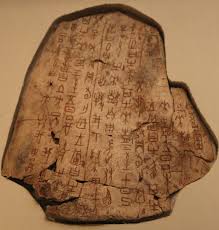More Pakistani products to enter China this year

Beijing: As China relaxes its Covid-19-related restrictions, I think a major turnaround will happen for Pakistani producers. I hope that Pakistani producers, exporters, and manufacturers will come here and explore this wonderful market”, said Ghulam Qadir, Commercial Counselor of the Embassy of Pakistan in China.
On Jan. 8, China lifted quarantine requirements for inbound travelers, auguring well for its economic and trade relations with other countries in the world, including Pakistan.
The Commercial Counselor told China Economic Net (CEN) that Pakistan business opportunity conferences and trilateral business opportunity conferences are in pipeline for more frequent exchanges between the two brotherly countries. Various cultural festivities like food, cuisine, and fashion shows shall be held.
We are also looking into organizing a roadshow of Pakistani products in China, he said.
Looking back to the past year, Ghulam Qadir acknowledged it has been a difficult year for the global economy. Despite this, breakthroughs have been achieved.
Pakistan’s cherry has been allowed to be exported to China, which amounts to a US$2 billion market. Our sesame seed export to China surged by 50 percent on a year-on-year basis to US$59.09 million in Jan-Sept 2022. Pakistan’s rice exports to China crossed the historical figure of one million tons. We are also finalizing trade protocols for dairy products and meat products. It’s around a US$20 billion market, he exemplified.
This year, he said, the focus will be put on e-commerce. In China, most of the selling takes place through e-commerce. So we are sensitizing our Pakistani exporters and manufacturers to come to China and use the wonderful facilities provided by the Chinese and provincial governments for warehousing, rent-free offices, and all the rest of other facilities, he said.
Joint ventures will continue being encouraged to help move Pakistani products up the value chain and find a broader market. We want the sesame to be converted into sesame oil and by-products, cotton yarn into textile and final products, and broken rice into animal feed and noodles made in Pakistan. The market is huge, he said.
Ghulam Qadir introduced that as 2023 marks the Pakistan-China Year of Tourism Exchanges, there will be some very special packages and a complete guidebook to facilitate travel from China to Pakistan.
Talking about the Belt and Road initiative which marks its tenth anniversary this year, Ghulam Qadir told CEN that Pakistan was one of the pioneer participants and a beneficiary of BRI.
According to data from the World Bank, Pakistan’s export to China rose by over 35% from US$ 2,652 million in 2013 when BRI was proposed to US$ 3,589 million in 2021.
Ghulam Qadir stated that under the first phase of CPEC, the flagship project of BRI, infrastructure has been built and the most efficient energy has been provided to Pakistani consumers. Motorways are being built which are going to connect Pakistan’s cities and ports from north to south.
Entering into the second phase, B2B cooperation will be stepped up to convert this huge infrastructure into industrial and export-oriented outcomes. With more joint ventures, we can have more technology transfer and IT-related cooperation, he envisioned, Pakistan can not only become the food basket for China but also provide products at competitive rates.





